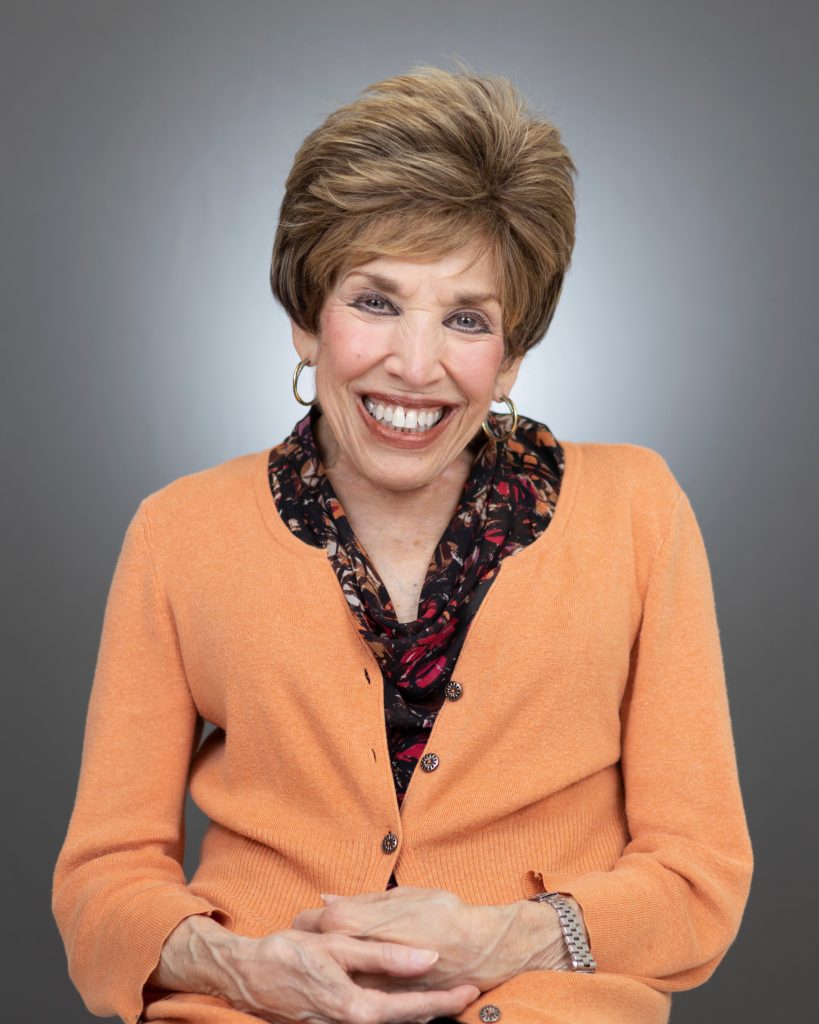
Carole Mendelson, PhD, professor of biochemistry and obstetrics and gynecology, and a member of the Cecil H. and Ida Green Center for Reproductive Biology Sciences at the University of Texas Southwestern Medical Center, passed away on February 12, 2023.
Carole was a national leader in the fields of endocrinology and reproductive biology, and a passionate advocate for the advancement of women in science. Those fortunate to have known her professionally and personally will remember her tremendous intellect, infectious enthusiasm for research, excellence in teaching, dedication to mentorship, and unending support for trainees and scientists at UT Southwestern and around the world. Equally compelling was her magnificent smile, the importance she placed on being a respectful and caring colleague, and the zest and warmth she brought to any occasion – be it a national conference or a delicious meal in her home.
Carole was a national leader in the fields of endocrinology and reproductive biology, and a passionate advocate for the advancement of women in science. Those fortunate to have known her professionally and personally will remember her tremendous intellect, infectious enthusiasm for research, excellence in teaching, dedication to mentorship, and unending support for trainees and scientists at UT Southwestern and around the world.
Carole was born on April 20, 1944 in New York City. After receiving a B.S. in Biology from the City College of New York and a PhD in Zoology from Rutgers University, Carole pursued postdoctoral research in reproduction, endocrinology, and pharmacology at the National Institutes of Health (NIH), the University of Colorado Medical School, and UT Southwestern Medical Center.
Carole came to UT Southwestern in 1976 as a postdoctoral fellow in the laboratory of Dr. John Johnston. In 1978, she joined the UT Southwestern faculty. Carole dedicated her career to understanding reproductive and prenatal health and improving the lives of mothers and their babies for generations to come. Her impactful research in this arena focused on three key areas: transcriptional regulation of fetal lung development, placental development, and the function and molecular mechanisms regulating uterine function in pregnancy and parturition.
During her career, Carole was funded by the NIH, the March of Dimes Foundation, and the Burroughs Wellcome Fund. She held an NIH MERIT Award from 1998 to 2008. For 18 years, Carole led the North Texas March of Dimes Birth Defects Center, which was established jointly in 2003 by the March of Dimes and UT Southwestern.
Carole held many leadership positions in her fields of study. She was as an active member of the Endocrine Society for more than three decades, where she served on the leadership Council and as Vice President for Basic Science. She also served as chair and member of the Annual Meeting Steering Committee, the Education Committee, the Publications Committee, and the Nominations Committee. She was a member of the editorial boards of Endocrine Reviews and Molecular Endocrinology. She also served as President of Women in Endocrinology when its mentorship program was created.
Carole was active in the Society for Reproductive Investigation (SRI) and was president of the Society at the time of her death. She was also involved with the Federation of American Societies for Experimental Biology (FASEB), and served on the Training and Career Opportunities subcommittee. At UT Southwestern, she was an inaugural member of the Women in Science and Medicine Advisory Committee from its inception in 1994 and co-chaired the committee for the past 12 years. In this role, she championed for lactation rooms and a children’s daycare on the University campus. She also served as President of the UT Southwestern Faculty Senate from 1992 to 1993.
Her contributions to the fields of endocrinology and reproductive biology were recognized with multiple honors including the Roy O. Greep Award for Outstanding Research and the Sidney H. Ingbar Distinguished Service Award from The Endocrine Society; an Award for Mentorship from Women in Endocrinology; and the President’s Distinguished Scientist Award and an Award for Mentorship from the Society for Reproductive Investigation.
Carole’s scientific acumen, her pioneering efforts for the advancement of women in science, and her kind and spirited personality will leave an enduring imprint.
Carole was as devoted to her family as she was to her science. She is survived by her husband Michael, to whom she was married for 56 years. Together they raised four children: Laurie, Sandee, Andrew, and Barbara, were blessed with a son-in-law (Seth) and daughter-in-law (Laura), and six grandchildren: Avery, Alex, Jacob, Jonah, Ava, and Martin. She was an avid supporter of the arts, a longtime patron of the Dallas Symphony Orchestra and could always be counted on to be up to date on politics or the latest new restaurant in Dallas.
Carole’s scientific acumen, her pioneering efforts for the advancement of women in science, and her kind and spirited personality will leave an enduring imprint. The magnitude of her impact was reinforced to us by the number of messages and personal stories that we have received since her death. Both of us interacted with Carole on a regular basis at UT Southwestern and will certainly miss her probing questions at the ends of each seminar, the wisdom and support she shared generously, the grace and grit by which she continued to be a productive leader in our scientific community until just days before her death, and last but not least seeing her “signature” silver Corvette in the parking garage. Carole was an exceptional human who brought elegance, charm, and intellect to any occasion. She will be sorely missed.

